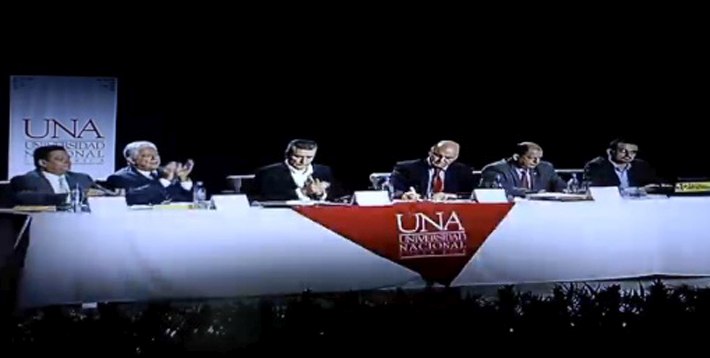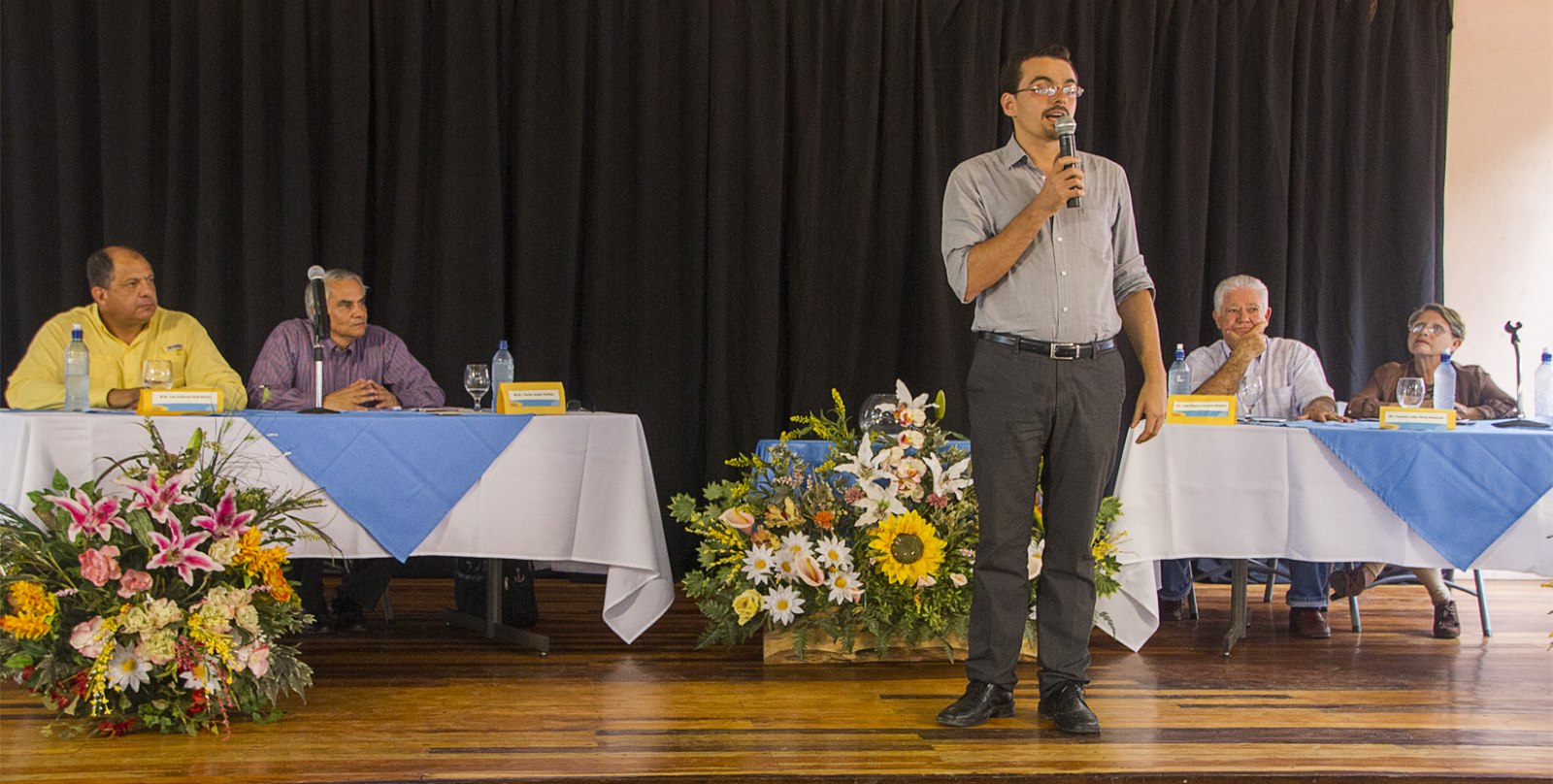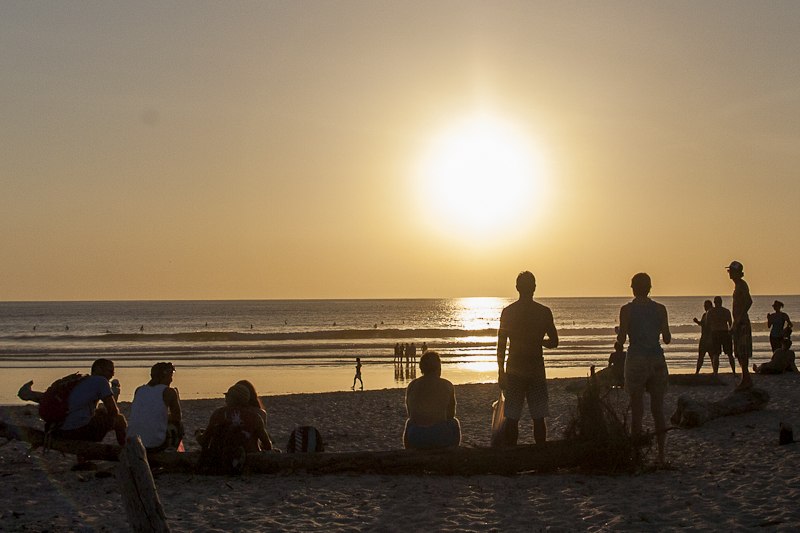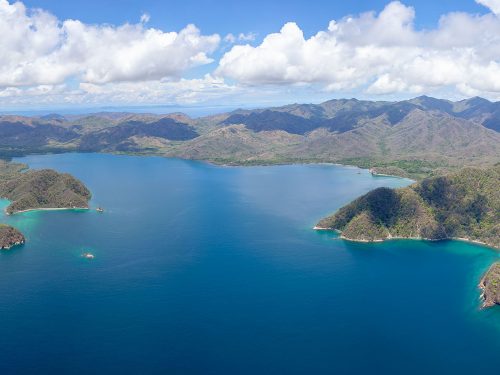
The first presidential debate kicked off Costa Rica’s election season yesterday evening, as candidates squared off on subjects that included corruption, poverty, taxes and the country’s fiscal deficit, education and climate change.
Participating in the debate at the National University (UNA) were candidates Luis Guillermo Solis of the Citizens Action Party (PAC), Jose Maria Villalta, Broad Front (FA), Johnny Araya, National Liberation Front (PLN), Jose Miguel Corrales, Patria Nueva (New Nation/PN), Otto Guevara of the Liberation Movement (ML) and Rodolfo Piza of the Social Christian Unity Party (PUSC).
During the debate, Solis concentrated on the urgent need to invest in Costa Rica’s education system, and to “give people an opportunity to develop and take concrete measures to ensure their ongoing education.”
Corrales, Guevara, and Piza emphasized the mismanagement of government resources and the need to change the course of the country’s economic development.
In one of the early exchanges between candidates, Guevara criticized Araya’s response to a question regarding poverty.
“Without a social survey, we don’t know where the poor are in Costa Rica,” Araya said. Guevara fired back: “Don Johnny had eight years in power and doesn’t know where the poor people are,” referring to Araya’s time as mayor of San José.
On Tax Reform
The candidates chose to speak only briefly on the subject of tax reform, spending significantly more time on the subject of poverty, which traditionally brings voters to the polls.
Araya proposed the creation of a body to oversee the issues of taxation, tax collection, and the fiscal deficit, in order to identify the root cause of the country’s fiscal problems and define measures to combat it.
Guevara was clear that he strongly opposes the latest proposals of tax reforms that would raise taxes on citizens. “We will not put our hand in the pocket of the citizen, we believe that we have to activate the economy, with that revenue we can generate better living conditions.”
PUSC candidate, Rodolfo Piza said he does not believe in tax reforms if there was not a 100% guarantee that collection was effective.
Luis Guillermo Solis of the Citizen Action Party and Jose Miguel Corrales of Patria Nueva (New Nation) were both clear that they support a bill to cinrease taxes, but accompanied by reforms to tax collection and stronger punishments for tax evaders.
Solis said the country should move from its current sales tax system (IVI) to a Value-Added Tax (IVA for its Spanish Acronym).
On Poverty
The candidates spent quite a bit of time on the subject of poverty, which all hope will drive voters to the polls and which affects slightly more than 20% of the population.
Villalta of Frente Amplio (Broad Front) said that the traditional political parties have only been interested in managing, rather than eliminating poverty. He pledged to eliminate extreme poverty through a series of steps.
Villalta said he wants to protect labor rights, and if the poor were paid the legal minimum wage, poverty would be reduced by 30%, citing a study from the National University (UNA). He said he would ask the Ministry of Labor to reform and revise minimum wages.
Villalta continued saying that the agricultural sector needs to be revived, with more protection for small and medium enterprises and access to credit for such businesses.
Further, Villalta said that the excessive growth of prices of commodities needs to be regulated. Villalta also mentioned tax reform, and ensuring equitable access to education.
Meanwhile Solis (PAC) said that the main victims of poverty are young people and women, because the country’s development model has abandoned smaller sectors of the economy, in what he called a “perverse logic of concentration.” Solis said that more attention needs to be given to small and medium enterprises, and an improved development bank to provide risk capital to these enterprises.
Piza (PUSC) said that the root causes of poverty need to be addressed, without being specific. He added that the education system needs to be strengthened, pointing out that half of young people no longer finish school. Piza also stressed the need to create jobs. Piza also said that steps need to be taken to avoid duplication of public entities, pointing out that 27 organizations have been established to fight poverty.
Otto Guevara (ML) repeated his promise several times to create 500,000 jobs in his term. Guevara said obstacles to commerce need to be removed, and the country follow the path of free trade. This prompted some heckling from the audience, which increased when he proposed further opening the electricity market to competition. Guevara responded by pointing out that Costa Ricans are paying the highest electric rates in Latin America. Guevara also proposed opening the oil market, currently controlled by state-ran RECOPE.
PLN candidate Johnny Araya, spoke of changing the country’s development model to address poverty, in addition to the need to “identify where the country’s poor are located.”
“To achieve better distribution of wealth, you must change the development model, you have to make an adjustment in the development model that places employment at the center of economic policy,” Araya said.







Comments